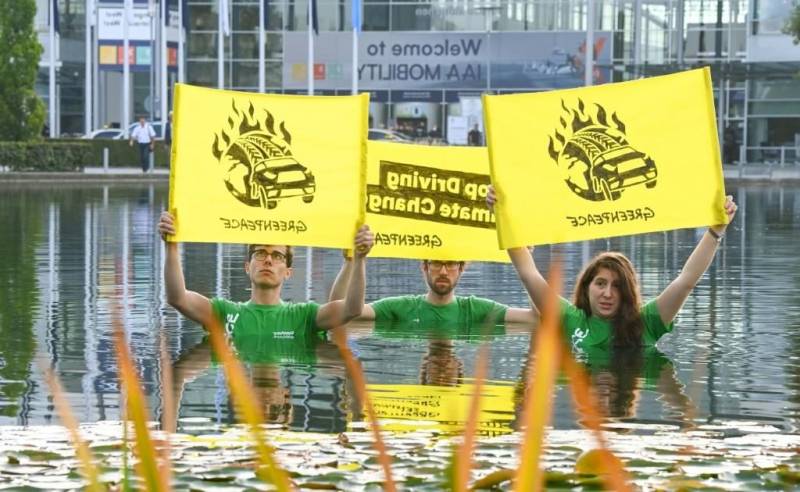Little to celebrate after 50 years of activism: Greenpeace chief

Stay tuned with 24 News HD Android App

Half a century after a small group of radicals created Greenpeace, the head of the environmental organisation warned that it still has far to go on the climate crisis before it can truly celebrate.
Created on September 15, 1971 when a boat of the same name tried to stop a US nuclear test, Greenpeace has become one of the world's best known action groups with its headline-grabbing stunts.
But the organisation's 50th anniversary is expected to be a subdued affair, Jennifer Morgan, executive director of Greenpeace International, told AFP.
"There is not a lot to celebrate right now. We are in a climate emergency," Morgan said in an interview at the group's headquarters in a modest office block on the outskirts of Amsterdam.
Morgan said she was "deeply worried" that the world's response would fall short at the crucial COP26 climate summit in Glasgow in October.
"Everything that we've done over those 50 years, we have to pull together now and deploy it into creating absolutely radical and deep change. Time is running out."
Change the world
Greenpeace's journey began idealistically, if unsuccessfully, with that first sailing from the Canadian port of Vancouver. The bid by the boat "Greenpeace" to halt a nuclear test off the Alaskan coast was cut short when the police intervened.
Since then, the organisation achievements include helping to stop commercial whaling, targeting fossil fuel companies, working to stop toxic dumping and protecting Antarctica, Morgan said.
Surrounded by memorabilia from Greenpeace's history including colourful campaign posters and a ship's door kicked in by Russian officials in 2013, Morgan says the organisation's core principles remain the same today.
"Greenpeace started as an idea that individuals could change the world with an idea and a bit of hope," said Morgan, who took the helm of the group in 2016.
"I think over 50 years Greenpeace has achieved really miraculous things."
There has also been tragedy among the triumphs.
In 1985, the French secret service bombed Greenpeace's flagship vessel the "Rainbow Warrior" while it was docked in Auckland, New Zealand, killing Portuguese photographer Fernando Pereira.
Greenpeace activists "mark that date every year" and the organisation remains wary of governments, with activists in Brazil, Indonesia and China in particular facing personal risk.
Tipping point
Greenpeace has vastly expanded since the early days and now has than 3,500 staff operating in some 55 countries - almost as big as some of the multinational firms it targets.
But Morgan insisted the group was still "radical" despite the emergence of younger rivals such as Extinction Rebellion, which has gathered huge attention with activists gluing themselves to buildings or blocking roads and bridges.
Known in the past for its own stunts, Greenpeace is now increasingly embracing other strategies including climate-based legal action against governments and polluters.
Morgan said Greenpeace was also cooperating more with other environmental groups and with indigenous people -- things she said the group should have done more often.
It would also be involved with the COP 26 summit, a "fundamental moment for the planet" that she feared countries might not seize.
"I'm deeply worried, what I see right now is governments that are almost acting as if we're back in the 1980s" in terms of their levels of urgency on climate, she said.
She also called for the summit to be postponed if developing countries are not able to attend because of a lack of Covid-19 vaccines.
For its anniversary, Greenpeace has planned small-scale events in offices around the world on Thursday.
At a celebratory event in Germany in August, Chancellor Angela Merkel praised the group as "persistent, combative, steadfast and persuasive".
So what lies ahead for Greenpeace over the next 50 years?
"I guess the goal would be that Greenpeace doesn't exist anymore," said Morgan.
But assuming the environmental campaign will face more battles ahead, she said she hoped Greenpeace could help create a "tipping point where there was a movement into hope".
